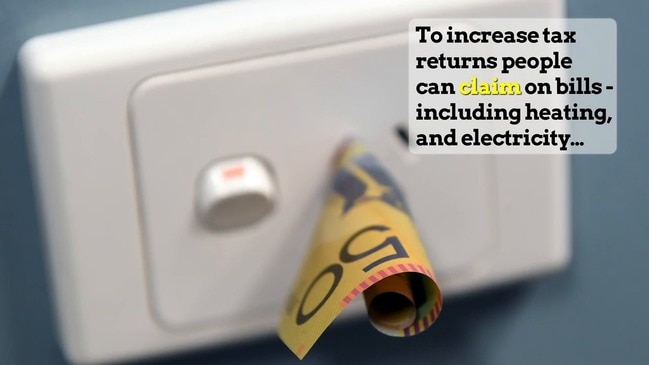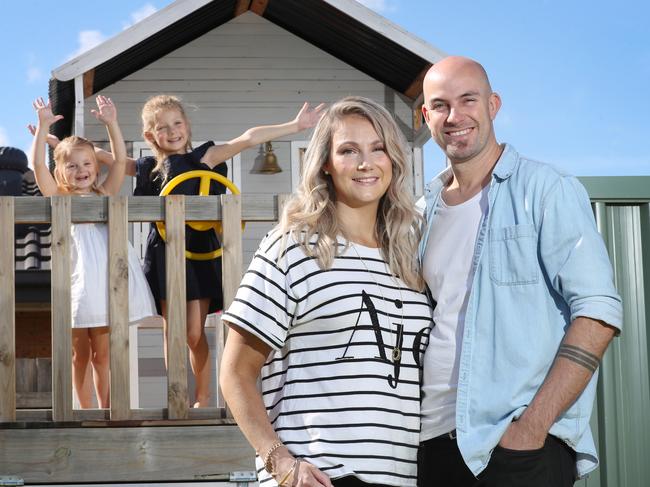COVID-19 financial help: What you must know, support payments available to Australians
Millions of Australians have been thrown into financial turmoil with coronavirus-induced job losses and income falls. This is what you should do first, and the support payments that are available.

Coronavirus
Don't miss out on the headlines from Coronavirus. Followed categories will be added to My News.
Millions of Australians have been thrown into financial turmoil in recent weeks while they deal with coronavirus-induced job losses and income falls.
The Federal Government has rolled out hundreds of billions of dollars in support packages to help cushion the blow.
This has included a series of measures such as income support payments, mortgage deferrals, early access to superannuation, and free access to child care and mental health services.
But while many are still navigating what lies ahead, experts say it’s important to try and take stock of your financial position now.
Tribeca Financial’s chief executive officer Ryan Watson said the first thing people should do is review their largest expenses first which for one in three people is their mortgage.
“They should get in touch with their trusted mortgage broker to discuss the principal and interest payment relief that the banks are currently offering,” he said.
“For those people who have lost their job or are on a reduced income, they should be looking at the household expenditure and cutting back wherever they can.
“This is the key lever that they now have to pull.”
He said while social activities had ground to a halt many people were “spending less while in isolation”.
“As such, we are suggesting to clients that it is a great time to build up some extra funds in their ‘rainy day’ account,” Mr Watson said.
One of the country’s largest mortgage broking firms, Aussie’s chief executive officer James Symond, said it had been inundated by people seeking helps with their loans.
This includes considering lowering mortgage repayments or requesting a payment deferral.
“As households feel the strain of the pandemic, it is more important than ever to know what interest rate customers are paying on your home loan and what options are available to them,” he said.
Australians can also access free financial counselling by contacting the National Debt Helpline on 1800 007 007.

Mother-of-two Lisa Ware is saving hundreds of dollars a week by not having to pay childcare costs for her two children.
But together with husband Michael, the pair are concerned about what the future holds including their job security.
Mrs Ware works in aged care and has increased her hours from part-time to full time, while Mr Ware works in signage and they have two children Isabelle, 5 and Emilia, 2.
“We are lucky and grateful that we both have our jobs but it’s still quite volatile and we’re not quite sure how it’s going to play out,” she said.
“We could find in a few weeks my husband doesn’t have anymore work and so he could be home schooling our eldest.
“There’s a juggle of working at home and home schooling as well.”
The pair also used a mortgage broker to recently refinance their $500,000 home loan on their three-bedroom house, reducing their interest rate from 3.39 per cent to just 2.69 per cent.
This is saving the couple about $2500 in charges which has come at a very important time while coping with the coronavirus fallout.
MORE NEWS
Best ways to get instant financial help during COVID-19
Cracks appear during COVID-19 in our perfect lives
Why CommBank just made it harder to get a home loan
The dangers of taking a home loan holiday
COVID-19 SUPPORT GUIDE: WHAT YOU MUST KNOW
JOBKEEPER PAYMENT
Provides a flat-rate payment of $1500 per fortnight to all eligible employees including full-time, part-time and long-term casual staff.
It also includes staff who have been stood down.
The payment is made via employers who have signed up to the scheme and employees will receive $1500 regardless of their normal earnings.
Employers can provide a top-up to employees earning more than this.
To be eligible the business must have experienced a decline in turnover of between 30 and 50 per cent depending on the size of their operations.
•Available from March 30, business will receive the first payment in the first week of May.
JOBSEEKER PAYMENT
This payment is for those seeking employment and are aged between 22 and pension age.
All applicants must meet an asset test.
They can seek payments from $565.70 to $790.10 a fortnight depending on their income.
If the applicant has a partner, their income could impact what they are entitled to.
People can also apply if they are sick or injured and cannot work.
The best way to apply is via my.gov.au.
The payment is subject to a partner income test and the associated Coronavirus Supplement providing a person’s partner earn less than $3068 per fortnight or $79,792 annually.
•Available from March 20.
CORONAVIRUS SUPPLEMENT PAYMENT
This is for those eligible for the Jobseeker payment or if they receive other Human Services payments including Youth Allowance or Parenting Payments.
This is a new additional support payment of $550 per fortnight starting from 27 April 2020.
CHILD CARE
Child care services are fee-free for families and it’s likely to be in place for at least six months.
This is available to any family whose children are enrolled in an approved child care service.
MORTGAGE REPAYMENTS
Banks are offering borrowers up to six months deferral on their repayments, this includes principal and interest repayments.
Interest costs still apply during the deferral period and they will be added onto the total loan cost once the deferral period ends.
Check with your bank to see what help is available because the deferral duration varies depending on the lender.
CREDIT CARDS/PERSONAL LOANS
Banks have rolled out a series of other measures to help customers with lines of credit.
This includes giving payment holidays for credit card or personal loan products or reducing the minimum amount that must be paid each month.
Speak to your financial institution to see what options are available.
BUSINESS RELIEF PACKAGE
This is available to business customers of participating banks with business loans of up to $10 million and the business has been impacted by COVID-19.
Apply to your bank as soon as possible to get a loan deferral.
Once the deferral period ends businesses will not have to pay the deferred interest in a lump sum.
Instead they can extend the loan term or add the interest amount onto the total loan repayment owing.
Other forms of relief include the waiving of fees, loan restructuring and the offer of extra credit.
SME LOANS
The Government will provide eligible lenders with a guarantee for loans that they then provide to small to medium businesses and sole traders with a turnover of up to $50 million.
The loans are for a maximum of $250,000 and are for up to three years with an initial six month repayment holiday.
HEALTH INSURANCE
Most health insurers have deferred the annual premium increases that were scheduled to kick in on April 1.
The average premium was to rise by an average of 2.92 per cent but this has now been delayed for at least six months.
Also, every single hospital cover policy from basic to gold cover will include coverage for hospital costs of those affected by COVID-19.
SUPERANNUATION
Australians suffering financial hardship can access their super from April 20 or alternatively register their interest now through the my.gov.au website beforehand.
Eligible Australians can access $10,000 this financial year and $10,000 next financial year.
Applicants must be unemployed or made redundant after January 1 or had their working hours slashed by 20 per cent or more.
Applications can be made through the my.gov.au website.
UTILITIES
Check with your provider for bills including telco, utilities, council rates and water bills.
Many have waived late fees and rolled out flexible payment options.
MENTAL HEALTH SERVICES
The Federal Government has increased accessibility to mental health services including a 24/7 phone free counselling service lead by Beyond Blue to help people experiencing stress or anxiety from the pandemic.
HELPFUL WEBSITES
business.gov.au
health.gov.au
my.gov.au
servicesaustralia.gov.au
moneysmart.gov.au
australia.gov.au
dss.gov.au
beyondblue.org.au
Originally published as COVID-19 financial help: What you must know, support payments available to Australians



